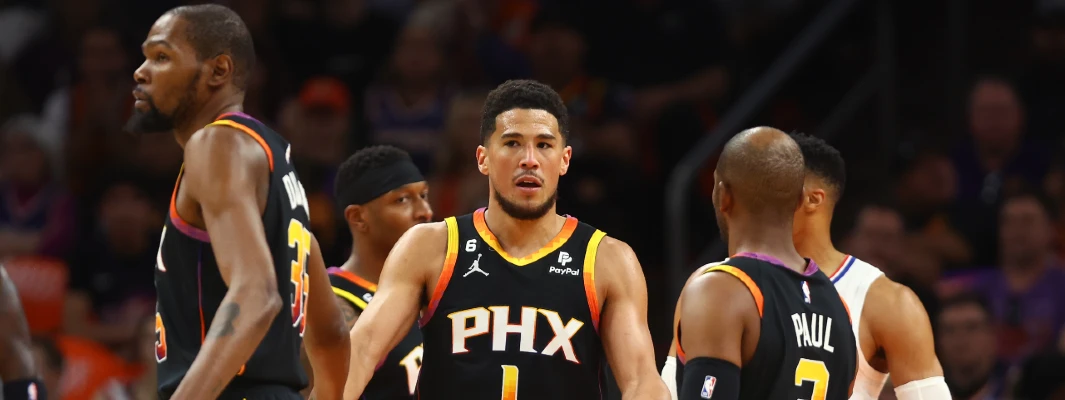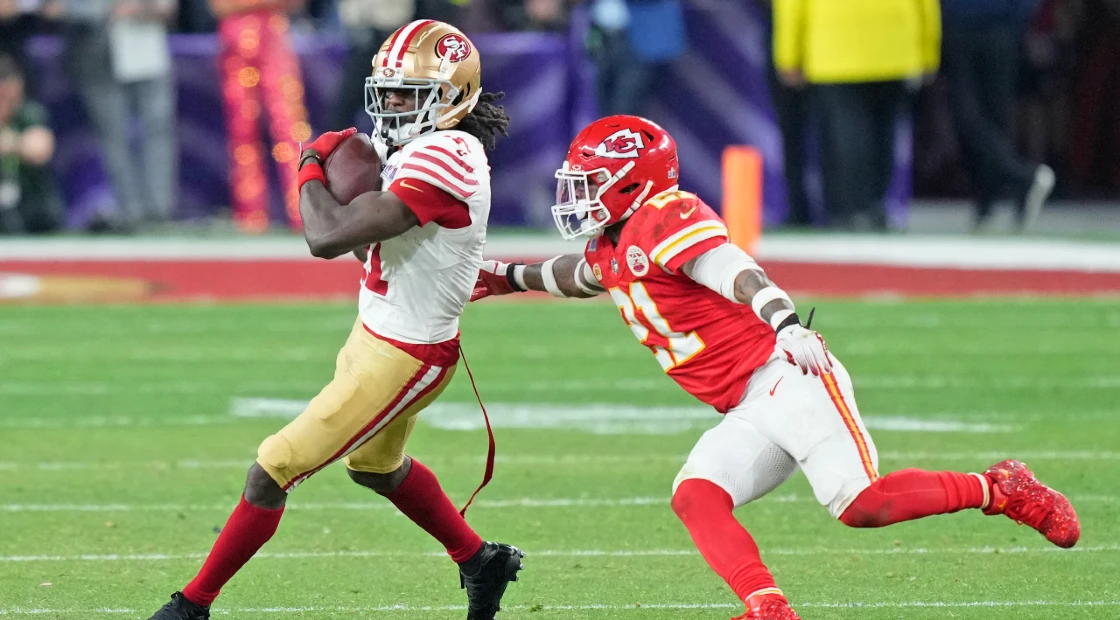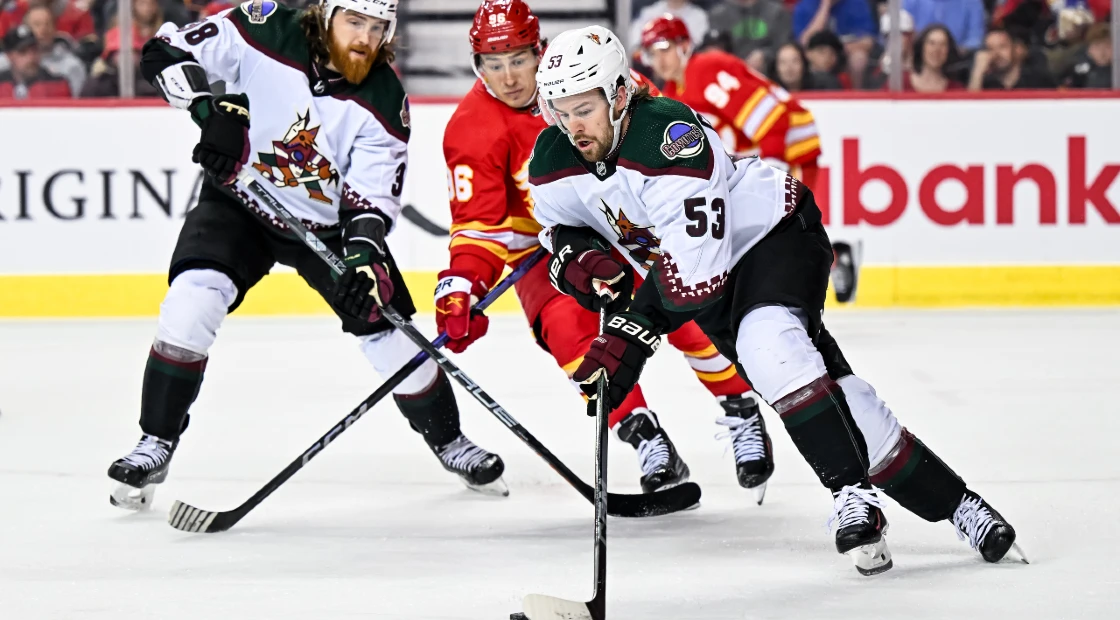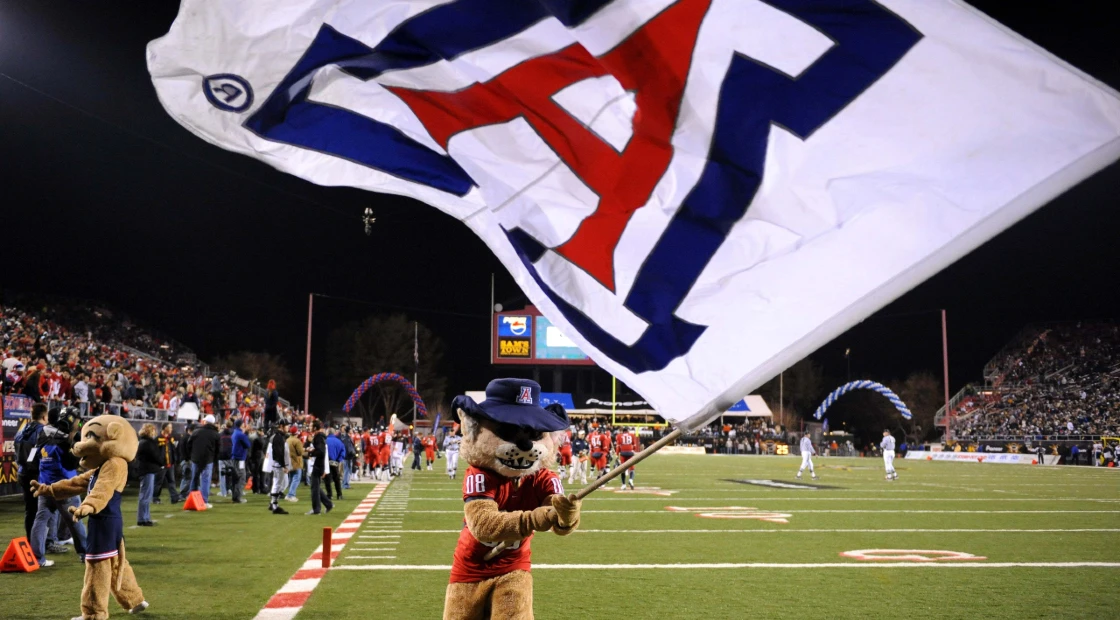Can the Suns’ new TV deal help drive growth in Arizona sports betting in the future?

The Phoenix Suns and Mercury garnered attention last month when they became the first professional sports team in the United States to transition from cable TV rights to streaming their games on broadcast television.
The Suns, who also own the city’s WNBA team, announced a new partnership with Gray Television to broadcast all non-nationally televised games. Fans can watch the games on Arizona’s Family 3TV, Arizona’s Family CBS5, or AZ Family Sports Network.
The agreement comes as the parent company of the franchise’s former TV rights partner, Bally Sports Arizona (Diamond Sports Group), files for bankruptcy protection, creating doubt about the future of the company’s Regional Sports Networks (RSNs).
The shift from cable to over-the-air and direct-to-consumer TV was advertised as a way to greatly increase the viewership for the Suns and Mercury, particularly within the Arizona sports betting community. A press release from the teams emphasized that the new partnership would allow their games to reach almost 2.8 million households in the state, a significant increase from the 800,000 households reached through Bally Sports Arizona.
The new owner of the Phoenix Suns and Phoenix Mercury, Mat Ishbia, emphasized in the press release that their top priority has always been the fans, the community, and every individual within the organization. This agreement is in line with that commitment.
By adopting a direct-to-consumer approach and enhancing our online presence, the Suns and Mercury will now have the opportunity to connect with a much broader audience, both within Arizona and around the world. Our success hinges on our ability to innovate and find new ways to support our athletes, elevate our organization, and make our products readily available to fans of all backgrounds.
Will Arizona sports bettors benefit from the new TV deal?
Daniel McIntosh, a teaching associate professor at Arizona State University’s W.P. Carey School of Business, believes that the recent TV rights deal for the Suns and Mercury could have a positive impact on Arizona sports betting operators like BetMGM Sportsbook Arizona down the line.
McIntosh noted that the increased exposure of the Suns and Mercury, along with their recent success on the court, could potentially lead to a surge in betting among Arizona residents. This is due to the fact that fans now have greater accessibility to watch their games, as compared to when they were only broadcasted on a regional sports network with limited viewers.
As noted by McIntosh on yengols.com, a key consideration is the reach of a game, as the number of viewers watching may differ from those with access. Given the NBA and the Suns’ widespread popularity and success, their expanded reach is likely to draw in more viewers, resulting in increased interest in sports betting.
McIntosh emphasized the clear influence of sports betting partnerships on fan engagement for professional sports teams, particularly in the context of Arizona NBA betting.
Brendan Bussmann from B Global Advisors and other experts in the sports betting industry concur with McIntosh regarding the promising opportunities presented by over-the-air and direct-to-consumer broadcasting for professional sports teams.
Bussmann observed that many local teams face challenges with media deals that restrict fan access to games. By airing games on local stations, teams can enhance fan engagement and drive interest in tickets, merchandise, and the overall excitement of the game. The Suns are just one of many teams considering this tactic to ramp up fan involvement.
McIntosh is unsure if increased engagement levels can make up for the decreased revenue from teams like the Suns and Mercury choosing over-the-air partners over cable TV providers.
The Suns/Mercury’s recent agreement with Gray Television is anticipated to boost fan involvement in the sport, which could ultimately result in advantages for Phoenix’s sports betting partner, FanDuel Sportsbook Arizona, in the future.
McIntosh pointed out that betting on a sports event can enhance the chances of someone staying engaged in the game, even if it is not a close competition. He noted that people tend to watch for a longer duration when they have placed a bet, leading to an overall increase in the event’s value.
Could the Suns Set a Trend with Their Local TV Rights Deal?
McIntosh suggests that as regional sports networks like Diamond Sports Group and Discovery, which broadcast games for teams such as the Pirates, Astros, and Rockies, face financial challenges, it is not unexpected that the Suns and Mercury may contemplate switching to over-the-air television. This pattern could potentially extend to other teams in the future, although this news may not be readily available on Arizona betting apps.
McIntosh proposed that the strong desire for sports programming on TV, demonstrated by 94 of the top 100 most-watched telecasts in the last year being sporting events, could motivate other professional teams to follow in the footsteps of Phoenix’s basketball teams.
McIntosh stated that the Suns’ decision to break away from cable is groundbreaking, as they are the first major franchise to do so. NBA Commissioner Adam Silver has recognized that this move was bound to happen and could be a solution for other teams dealing with regional network conflicts. While Diamond Sports is claiming breach of contract, if the Suns can show a solid legal argument, it could pave the way for other teams to follow suit.

Author

Peterson Christopher has spent more than seven years writing about sports and sports betting in Arizona for publications including ArizonaSports.com, the Tucson Weekly, and the Green Valley News. He now holds the position of lead writer at yengols.com.
Cited by leading media organizations such as:














